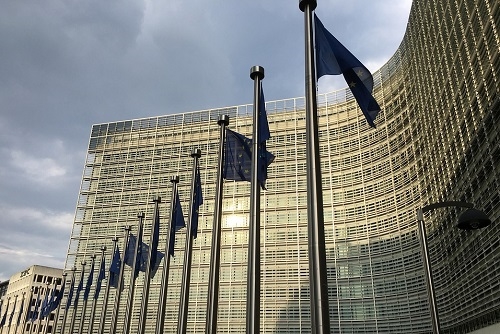ANALYSIS: Exchanges disagree on Europe's active account regulation

Two of Europe’s largest exchange groups last week squared up for the first time in the escalating battle for European short-term interest rate derivatives.
Intercontinental Exchange, which operates the main Euro short-term interest rate (STIR) market in London, and Frankfurt’s Eurex, which launched in November a programme targeting STIRs trading, shared a stage at the IDX conference.
The main point of discussions was the EMIR 3.0 regulation that requires European firms to open an active account with a European clearing house (like Eurex but others are available) to force Euro STIRs trading away from ICE to a European market.
Robbert Booij, who becomes on Monday chief executive of Eurex Frankfurt AG, said EMIR 3.0 and the active account requirement is a “well-balanced outcome” which encourages choice and is, therefore, a positive step for the European market.
The former chief executive of ABN Amro Clearing said: “I have always advocated for customer choice and I believe that customer choice means you can choose where you want to clear your contracts depending on market liquidity and risk management standards and how you are treated as a customer.”
European regulators agreed the EMIR 3.0 active account requirement in February, setting in process legal formalities that could see the requirement take effect in the middle of next year. The requirement as it stands refers to STIRs and Euro interest rate swaps, a market dominated by London’s LCH.
Booij added: “Looking at Eurex, I see we have a great team and a great system. Also, looking at prices, I think they are very competitive as well so there is choice. I have also always believed that customers should decide for themselves where they want to clear. I understand the regulatory focus but I also believe that customers have a credible alternative clearing at Eurex.”
But Chris Rhodes, the president of ICE Futures Europe, was critical of the regulation: “When it comes to regulatory intervention, it should be about addressing market failure or harm to a client or an asset class. To me, it is not clear that EMIR 3 and particularly the active account component addresses any of that.”
The ICE Futures Europe president said he has spoken to his top 50 European fixed income clients and “there is a level of confusion about what is being addressed here”.
Referring to Booij’s comment about choice, Rhodes added: “You make a good point about choice and choice is about value proposition: can you do something better in venue A versus venue B? That is clearly not the case when it comes to clearing interest rate swaps where the market-leader LCH and when it comes to STIR futures in Euro, Sterling and Swiss which is ICE.
Rhodes concluded: “I reminisce about the days when we competed on value and not the regulatory stick.”
EMIR 3.0 also came up in an earlier panel featuring ICE and the German exchange.
Eurex chief strategy officer Matthias Graulich said: “EMIR 3.0 is a political and regulatory topic to try and bring about a capital markets union and address certain systemic stability issues. What we have done from Eurex’s perspective is partner with the industry to build up a liquidity pool in the EU and I think we have successfully achieved this.”
“If we look at the swaps side, we have achieved a 20% market share. People are really active and we are seeing a nice liquidity picture with tight bid-offer spreads. That is where we see good progress and similarly on the short-term interest rate (STIR) side.”
“We have done our bit to enable the market to meet regulatory requirements, which has also brought competition and innovation to the market over the last couple of years,” said Graulich.
ICE Clear Europe president Hester Serafini disagreed, however, saying EMIR 3.0 was a “really unfortunate way of going about things”.
Serafini said the regulation failed to motivate market participants with an incentive to move more clearing into the EU, and would be more successful if it provided a credible proposition to do so.
London-based ICE Clear Europe is the central counterparty to Rhodes’ ICE Futures Europe.
“This policy is just forcing things and we’re not getting a great reception for it. We’re not seeing changes in flow or financing. We think what ultimately will prevail is where the liquidity is. People will go where the market is,” said Serafini.
“If we think about the rates market, we are facing a potentially volatile time as interest rates start coming down. Market participants are going to care about getting the right execution.”
Serafini noted that, when looking at ICE’s client base and who participates in its global liquidity pools with each product, only a small percentage is based in the EU.
“So we think will not achieve what it is trying to achieve. We think it will end up being unfortunate for some European-based entities when the rest of the world moves on and everything will be fine,” said Serafini.
Found this useful?
Take a complimentary trial of the FOW Marketing Intelligence Platform – the comprehensive source of news and analysis across the buy- and sell- side.
Gain access to:
- A single source of in-depth news, insight and analysis across Asset Management, Securities Finance, Custody, Fund Services and Derivatives
- Our interactive database, optimized to enable you to summarise data and build graphs outlining market activity
- Exclusive whitepapers, supplements and industry analysis curated and published by Futures & Options World
- Breaking news, daily and weekly alerts on the markets most relevant to you



